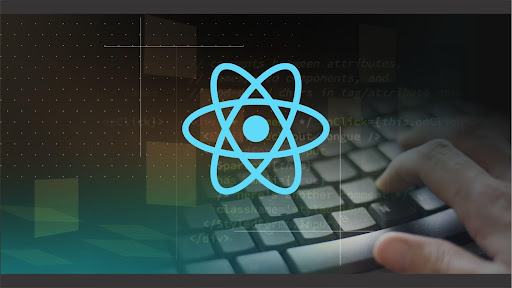React Native and Flutter are technologies for building Android and iOS applications in a native-like manner. If you aren’t experienced in app development, you may think these frameworks are quite similar. But the only thing Flutter and React Native have in common is that the developers use them for mobile app development. But the way they work is so much different, and that’s why they exist as separate solutions.
You can easily get confused when comparing Flutter to React Native, especially if you are used to one of these technologies and want to expand your knowledge. The truth is that no one can answer whether Flutter is better than React Native or vice versa because it depends on what functionality you need and what is more convenient for you.
The only thing we can notice, for now, is that more companies want to hire a React Native developer, but the demand for Flutter is also growing.
Therefore, we will look at both technologies from several aspects and compare them so that it is more evident to us what is happening.
But before we continue, let’s see:
What is React Native?
React Native uses JavaScript while providing cross-platform mobile app development. That means you can build mobile apps for iOS and Android using one code to work on every device. In doing so, block-like components and external libraries are also implemented.
The creator of React Native is today’s Meta, formerly Facebook. Compared to Flutter, React Native is an older and more documented solution. You will often see active freelance React Native developers making good money thanks to their knowledge of native-like app development.
What is Flutter?
Flutter is a cross-platform development solution for iOS, Android, web, and desktop app development. The difference is immediately noticeable because Flutter offers many more native-like solutions. Of course, that doesn’t mean it’s the better platform out of the two. On the contrary, it may mean that there are more limitations compared to React Native.
Flutter is a Google product that follows the reactive programming architecture. Large communities contribute a lot to the development of this platform, which means that you can always learn what is new and how it is implemented in development.
What Programming Language Are Flutter and React Native Based On?
React Native results from React JS, which is based on JavaScript. On the other hand, Flutter is built using the programming language known as Dart. Google owns this programming language, but developers rarely use it for other practical purposes.
How Does Flutter vs. React Native Perform?
In terms of runtime execution and loading speed, Flutter is faster than React Native. The same applies to behavior code speed.
React Native uses JavaScript, meaning many libraries and known functionalities from this programming language are included. Many don’t know that this actually degrades performance, although the average user won’t notice it.
On the other hand, Flutter is based on Dart, which is not a very popular language among developers. But it also means that it is in a closed system. Not many active developers would contribute to the development of this programming language and, therefore, of Flutter.
Of course, this does not mean that Flutter is a bad solution, but that the circle is narrower and more closed, sometimes giving developers a specific advantage.
Developer Experiences
Many developers have already tried both options, which means a direct comparison of the developer elements of Flutter vs. React Native from many aspects.
Interestingly, both platforms require you to know other programming languages (Dart and JavaScript) before getting used to their concepts. Both solutions are based on simple components that are implemented intuitively.
Flutter has more standard widgets than React Native but also has clear add-ins management. React is based on declarative syntax, while Flutter follows Dart’s syntax. And finally, with React Native, you can separate styles from elements, while Flutter is impossible.
However, the great thing is that whether you are a freelance React Native developer or a Flutter expert, you already have a significant advantage in the job market with these skills.
Do React Native and Flutter have Documentation Available?
React Native’s documentation is available to users, but not everyone is happy with the way it’s compiled. According to the developers, the React Native documentation can sometimes be confusing.
On the other hand, in their famous manner, Google offers detailed and well-formatted documentation. These overview instructions directly explain the problems you would face but also offer interesting solutions.
General Popularity Among Users
React Native has been on the market longer, so it’s expected that global interest is focused on it. Search trends are in favor of React Native, although it can also be noted that interest in Flutter is also gradually increasing. But this data doesn’t tell a lot because trends are changing, and sometimes there is a current demand which makes some solutions more convenient.
What do you Need to Learn Before Using These Solutions?
For React Native, as we already mentioned, advanced knowledge in JavaScript is mandatory, and of course, it will help if you know HTML and CSS. To learn Flutter, it will help if you already know JavaScript, C#, and C++. Flutter is written in Dart, but as we’ve already emphasized, there aren’t many fluent developers who could spread their knowledge to the newbies.
Final Thoughts
This article aimed to understand the fundamental difference between two similar solutions for native-like application development. Of course, you may also need more time to decide what would be better for your career development.
However, the general conclusion is that if you are more focused on Android and iOS, choose React Native. But if you want to expand your work to desktop and web development, maybe you should focus more on Flutter.
The good thing is that both solutions continue to grow, regardless of current trends. Maybe in a year, Flutter will become more popular than React Native, but still, this is not a competition, and it doesn’t necessarily mean that one has to be better than the other. On the contrary, the technologies complement each other very well, which is a very optimal approach when looking for practical solutions for mobile applications.





